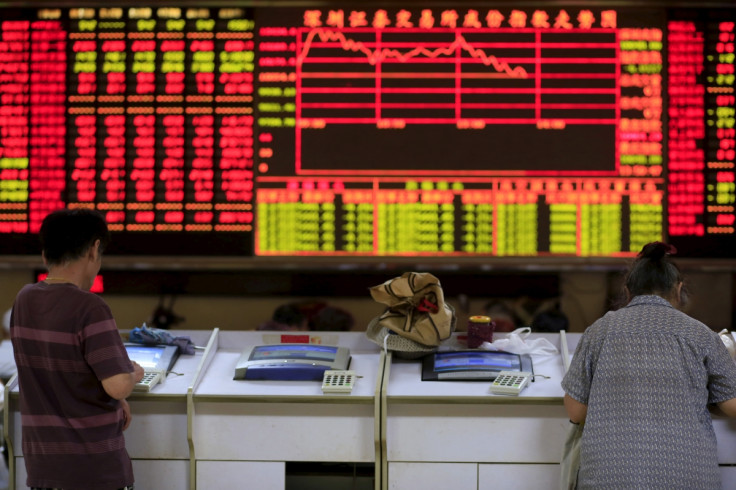Asian stock markets down after negative Wall Street close

Most Asian stock market indices including China's Shanghai Composite Index were trading lower on 19 February. This followed a negative overnight close on Wall Street and the Footsie, as oil prices declined after Saudi Arabia said that it will not freeze oil production. This made investors jittery over the future of the global economy.
Daisuke Uno, chief strategist at Sumitomo Mitsui Bank said: "I would assume oil prices will face downward pressure and there will be selling into a rally."
Indices in Asia traded as follows on 19 February at 5.46am GMT:
| Country | Index | Price | Up/Down | %Change |
| China | Shanghai Composite Index | 2,861.44 | Down | 0.05% |
| Hong Kong | Hang Seng Index | 19,298.90 | Down | 0.33% |
| Japan | Nikkei 225 | 15,988.90 | Down | 1.28% |
| South Korea | KOSPI | 1,910.48 | Up | 0.09% |
| India | CNX Nifty | 7,189.00 | Down | 0.04% |
| Australia | S&P/ASX 200 | 4,952.80 | Down | 0.79% |
Meanwhile, overnight on 18 February the Dow Jones Industrial Average closed at 16,413.43, down 0.25%, while the FTSE 100 closed lower by 0.97% at 5,971.95.
Tom White, head trader and chief market strategist at Red Option Advisors, told CNBC that the negative close on Wall Street was also partly because of the consolidation in the overall market, after the rapid movements in equities over the last 45 days. "What we're seeing here is people taking a break from these massive swings we have had recently," he added.
Trading could be range-bound till March, when the US Federal Reserve is to have its next policy meeting. This could be otherwise, if some new news such as another dip in oil prices emerge, White said.
Among commodities, WTI crude oil was trading 0.81% lower at $30.52 (£21.29, €27.44) a barrel, while Brent was down 0.73% at $34.03 a barrel at 5.59am GMT on 19 February.
© Copyright IBTimes 2025. All rights reserved.



















